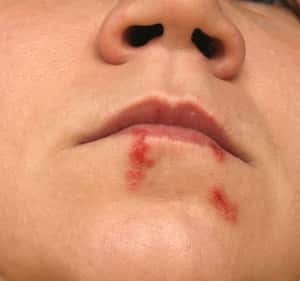
If you sometimes suffer from cold sores, you have a lot of company. Some experts estimate that more than half of adult Americans carry the herpes virus that causes these lesions. Decades ago, doctors had no treatments to prescribe, but that has all changed. Now there are several antivirals that can prevent fever blisters or speed their healing. What should you know about acyclovir and Sitavig, its more recent reformulation?
Home Remedies to Prevent Cold Sores:
Q. Fifty years ago I was at a party kidding a doctor that they didn’t even know how to prevent cold sores. He said, “Oh yes, we do! Just drink buttermilk to prevent them.”
I tried it and, sure enough, it works. I really don’t care for buttermilk, so I tried yogurt instead. That works too.
Tell your readers they don’t need medicine, just eat yogurt or drink buttermilk to prevent cold sores.
A. You’re not the first person to share the buttermilk secret. Pharmacists have recommended this approach for years and some people find it helpful. Other remedies include taking 500 mg of L-lysine or using the herb lemon balm as a topical treatment.
Herpes Labialis, The Infection No One Talks About:
Not everyone benefits from home remedies when it comes to cold sores or fever blisters. The medical name for this condition is herpes labialis (herpes simplex virus-1 or HSV-1) and it is indeed triggered by a viral infection.
Sun and Cold Sores:
Ultraviolet radiation (sunlight) is a powerful trigger for cold sores. Most people apply sunscreen all over their bodies but forget the lip balm with a high SPF number. As a result, the lips are vulnerable to UVB sun radiation, which is known to reactivate the virus that triggers an outbreak of herpes labialis. Whether you are relaxing at the beach or skiing the slopes, nothing spoils a vacation quite like a painful and unsightly cold sore.
An Old Drug with a Different Delivery System: Sitavig
The very first antiviral medication developed to treat cold sores was acyclovir. It was originally sold under the name Zovirax and it revolutionized the treatment of herpes infections.
The FDA later approved acyclovir in a new form. The prescription drug is called Sitavig. Instead of swallowing a pill or applying a cream, you place the Sitavig tablet just above your incisor tooth. It dissolves slowly through the gum (buccal administration) and provides long-acting antiviral activity to the tissue around the mouth.
A study published in the Journal of Drugs in Dermatology (July, 2014) offered the following conclusion:
“A single application of ABT [acyclovir mucoadhesive buccal tablet] improves all endpoints of HL [herpes labialis] and might modify its clinical course in decreasing the incidence and delaying the onset of the next recurrence.”
The single-dose treatment makes Sitavig convenient. And if we are to believe this research, this formulation of acyclovir should also delay a recurrence.
Unfortunately, it is also extremely pricey. A dose pack of two tablets can cost more than $1,000. Generic versions of acyclovir, valacyclovir or famciclovir tablets are much less expensive and may work nearly as well for many people.
All cold sore treatments work best when used at the very first signs of an outbreak. If that familiar tingle or burning sensation begins, start treating it promptly.

